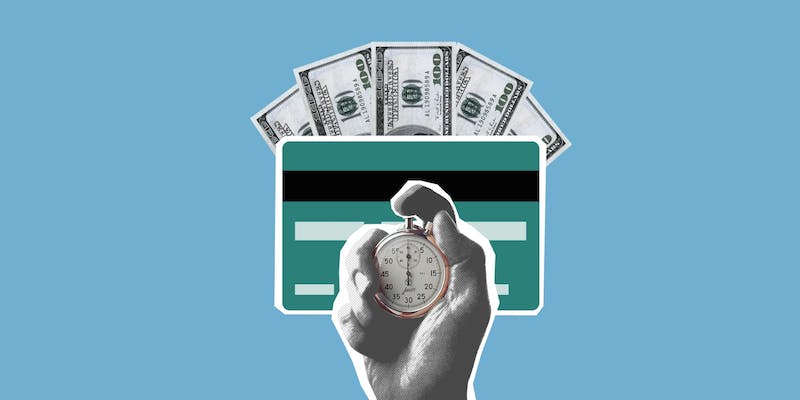Getting a Head Start: Mortgage Prequalification Tool
Triston Martin
Oct 27, 2023
Starting with mortgage prequalification helps people determine their home-buying possibilities. Lenders evaluate your credit score, obligations, income, and assets. This evaluation provides a general estimate of your loan amount. This is a no-obligation review with no credit investigation or commitment from either party.
Knowing your borrowing capability can shift the game in today's fast-paced home market. The mortgage prequalification calculator helps people understand their finances. Moreover, opting for the best mortgage prequalification calculator can streamline this process, ensuring more accurate results. As the shift towards online platforms continues, the convenience of mortgage prequalification online is undeniable, offering potential homeowners a hassle-free start to their journey.
The Importance of Mortgage Prequalification

Mortgage is essential for many reasons, some of which are listed below:
Financial Awareness
One of the primary benefits of mortgage prequalification online is the clarity it brings to your financial picture. It's a tool that helps potential homeowners assess their financial readiness. By getting a precise estimate of how much they might be eligible to borrow, individuals can set a budget for their house hunt, ensuring they look at properties within their means. With the rise of online tools, using a mortgage prequalification calculator has become a popular choice for many to get this estimate.
Boosts Confidence
Walking into the home-buying process with a prequalification in hand can be a confidence booster. It's like having a financial roadmap guiding you toward homes that align with your budget. This saves time and prevents the heartbreak of falling in love with a property out of reach. Leveraging the best mortgage prequalification calculator can further enhance this confidence, ensuring accurate data back to you.
Home Buying
In competitive housing markets, every advantage counts. When sellers are sifting through multiple offers, having a mortgage prequalification can set you apart. It signals sellers that you're not just browsing; you've done your homework and are serious about purchasing. As more people turn to mortgage prequalification online, this step is becoming a standard precursor to serious house hunting.
The Next Step: Preapproval
While the prequalification process offers an initial estimate, preapproval delves into the finer details of your financial health. It's a more detailed and documented process. Here, lenders will ask for proof of the information you provided during prequalification. This means gathering documents, verifying your income, and undergoing a detailed credit check.
Using the Mortgage Prequalification Calculator
The mortgage prequalification calculator is a key online resource for gauging their home loan potential. This tool simplifies the procedure by estimating your financial eligibility for a loan. Step-by-step instructions:
Input Annual Income
Start by entering your pre-tax annual income. This offers lenders an idea of your income, which affects loan eligibility.
Mortgage Term
Enter your desired mortgage length here. Whether the loan is 15 or 30 years, the duration affects your monthly payments and total interest.
Interest Rate
Enter the mortgage type's interest rate. If you need more clarification on the current rates, many online platforms, including the best mortgage prequalification calculator, offer up-to-date rates to guide you.
Credit Score
Your credit score is crucial to your loan eligibility. Select the range that best represents your score. If you're uncertain, numerous services provide free credit scores to help you out.
Employment Details
Lenders want to know about your employment status. Whether you're a salaried employee, a freelancer, or between jobs, this information helps assess your loan repayment capability.
Down Payment
Here, you'll indicate whether you've set aside money for the down payment. The size of your down payment can influence the loan amount and terms you're offered.
Past Financial Issues
Transparency is critical. If you've faced financial hiccups like bankruptcies or foreclosures in the past, mention them. While they might impact your loan terms, being upfront can help you find a mortgage tailored to your mortgage prequalification online situation.
Monthly Debt Payments
Detail your monthly obligations, from car loans to credit card bills. Lenders use this to assess your debt-to-income ratio, a critical factor in determining your loan eligibility.
After inputting these details, the mortgage prequalification calculator will generate an estimated loan amount. It also suggests an alternative, higher loan amount. Different loan types come with distinct criteria, so choosing an amount that aligns with your financial comfort zone is vital, rather than simply opting for the maximum offered.
Factors Behind the Calculation
Lenders rely heavily on the debt-to-income ratio (DTI) regarding mortgage prequalification. This metric offers insights into your financial health, and it's categorized into two main types:
Front-end DTI
This ratio focuses on your housing-related expenses. It considers anticipated mortgage payments, property taxes, insurance, and other related costs and divides this total by your gross monthly earnings.
Back-end DTI
A more comprehensive metric, the back-end DTI, encompasses all your monthly financial obligations. This includes everything from credit card bills to personal loans. These are then added to your housing-related expenses and divided by your gross monthly income to derive the ratio.
Prequalification vs. Preapproval
Prequalification is an initial assessment based on the information you provide. In contrast, preapproval requires thoroughly verifying your financial details, including your credit score and history. Sellers often favor offers with a preapproval letter over those with a pre-qualification.
Impact on Credit Score
The good news is that getting prequalified doesn't impact your credit score. Lenders base this on the details you provide and usually don't pull your credit report. However, when you move to the preapproval stage, lenders will check your credit report, which counts as a "hard inquiry."
Enhancing Your Prequalification Amount
If the figure from your prequalification differs from what you hoped for, don't fret. There are actionable steps you can take to boost this amount:
Improve Your Credit Score
Ensure your credit report is error-free, utilize less of your credit limit, and consistently pay bills on time.
Reduce Debts
Consolidate high-interest debts or aim to pay them off ultimately.
Consider Different Mortgage Types
Adjustable-rate mortgages offer a lower initial rate than fixed-rate loans.
Boost Your Income
A higher income can improve your DTI ratio, qualifying you for a larger loan.
Making the Most of Your Prequalification

Once you have your prequalification in hand, it's time to strategize:
Be Open to Different Locations
Broaden your horizons. Some neighborhoods or cities are more budget-friendly than others. By being flexible, you might find a gem in an unexpected place.
Seek Motivated Sellers
Time is money. Properties that have lingered on the market tend to have sellers who are more open to negotiation. This could mean a better deal for you.
Consider Renovation
Don't shy away from homes that need a bit of TLC. Sometimes, a property that requires some work can be a bargain. Certain mortgage types allow you to roll in renovation costs, making the process more financially manageable.







